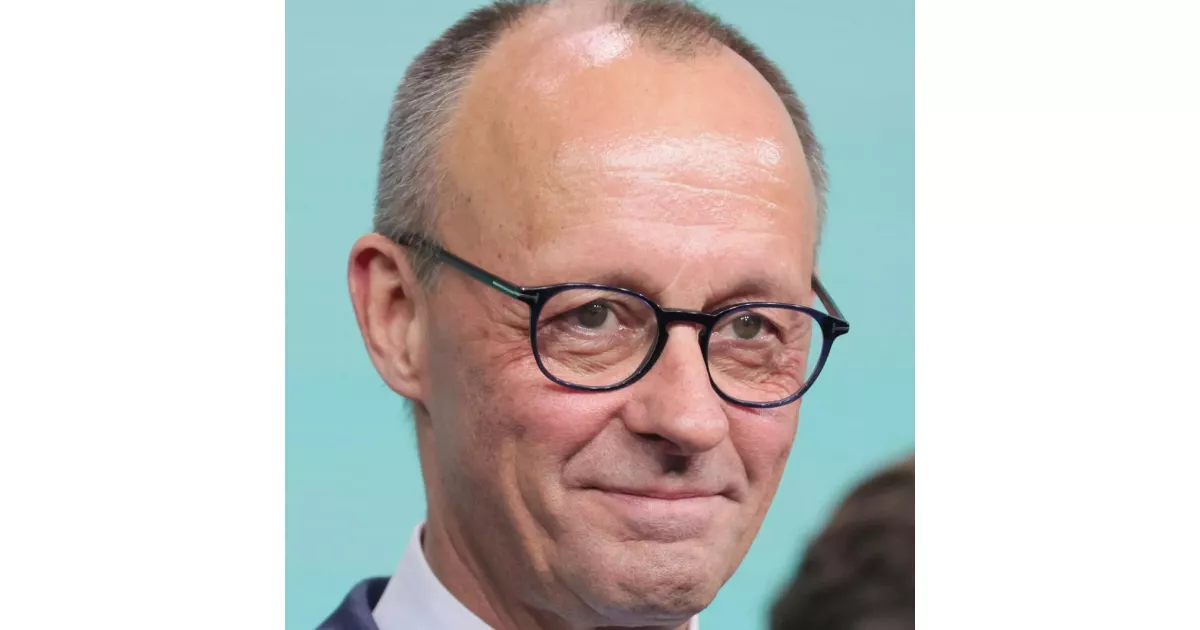Friedrich Merz is a prominent German politician, currently serving as the Leader of the Christian Democratic Union (CDU) since January 2022. He also led the CDU/CSU parliamentary group and served as Leader of the Opposition in the Bundestag. In September 2024, Merz became the Union's candidate for Chancellor of Germany ahead of the 2025 federal election. The CDU won the most seats, and a CDU/CSU coalition with the SPD was formed, projecting Merz to become Chancellor on May 6, 2025. However, he failed to secure a parliamentary majority in the initial vote, a historic first for a German chancellor candidate.
1924: Father's Birth Year
In 1924, Joachim Merz, Friedrich Merz's father, was born.
1928: Mother's Birth Year
In 1928, Paula Sauvigny, Friedrich Merz's mother, was born.
November 1955: Joachim-Friedrich Merz Born
In November 1955, Joachim-Friedrich Martin Josef Merz was born.
November 1955: Born in Brilon
On 11 November 1955, Joachim-Friedrich Martin Josef Merz was born in Brilon, North Rhine-Westphalia.
1966: Studied at Gymnasium Petrinum Brilon
From 1966, Merz studied at the Gymnasium Petrinum Brilon.
1971: Left Gymnasium Petrinum Brilon
In 1971, Merz left the Gymnasium Petrinum Brilon for disciplinary reasons.
1972: Joined Young Union
In 1972, Merz became a member of the CDU's youth wing, the Young Union.
July 1975: Started Military Service
In July 1975, Merz began his military service.
September 1976: Finished Military Service
In September 1976, Merz finished his military service.
1979: Formed Andean Pact
In 1979, The Andean pact was formed.
1980: President of Brilon Branch of Young Union
In 1980, Merz became President of the Brilon branch of the Young Union.
1985: Finished Law School
In 1985, Merz finished law school and subsequently worked as a judge and corporate lawyer.
1986: Worked as a Judge and Attorney
In 1986, Merz left his position as a judge to work as an in-house attorney at the German Chemical Industry Association.
1989: Worked at German Chemical Industry Association
From 1986 to 1989, Merz worked as an in-house attorney-at-law at the German Chemical Industry Association.
1989: Elected to European Parliament
In 1989, Merz was elected as a candidate in the European Parliament election.
1994: Elected to Bundestag
From the 1994 German elections, Merz served as a member of the Bundestag for his constituency, the Hochsauerland.
1994: End of Term in European Parliament
In 1994, Merz's term as a Member of the European Parliament concluded.
October 1998: Vice-Chairman of CDU/CSU Parliamentary Group
In October 1998, Merz became vice-chairman of the CDU/CSU parliamentary group.
February 2000: Chairman of the CDU/CSU Parliamentary Group
In February 2000, Merz became Chairman of the CDU/CSU parliamentary group, succeeding Wolfgang Schäuble.
2000: Elected Chairman of CDU/CSU Parliamentary Group
In 2000, Merz was elected chairman of the CDU/CSU parliamentary group.
2001: Comment on Klaus Wowereit Coming Out
In 2001, Friedrich Merz commented on Berlin's mayor Klaus Wowereit coming out as gay, saying "as long as he doesn't come near me, I don't care".
2002: Elected Deputy Parliamentary Group Leader
After the 2002 federal election, Angela Merkel claimed the parliamentary group chairmanship for herself, while Merz was elected deputy parliamentary group leader.
2002: Shadow Cabinet Appointment
Ahead of the 2002 elections, Edmund Stoiber included Merz in his shadow cabinet for the Christian Democrats' campaign.
2002: Secondary Jobs as a Member of the Bundestag
In the 14th legislative period (2002–2005), Friedrich Merz had a total of 18 secondary jobs as a member of the Bundestag (federal parliament of Germany).
December 2004: Resigned from Office
In December 2004, Merz resigned from his office as deputy parliamentary group leader, withdrawing from politics and focusing on his legal career.
2004: Vice-Chairman Until 2004
After Stoiber's electoral defeat, Angela Merkel assumed the leadership of the parliamentary group; Merz again served as vice-chairman until 2004.
2004: Senior Counsel at Mayer Brown
Since 2004, Merz has been a Senior Counsel at Mayer Brown's Düsseldorf office, where he works on the corporate finance team.
2005: Establishment of Friedrich und Charlotte Merz Stiftung
In 2005, Friedrich Merz and his wife established the Friedrich und Charlotte Merz Stiftung, a foundation supporting projects in the education sector.
2005: New Member of the Andean Pact
In 2005, Merz was described as a new member of the Andean Pact.
2005: Secondary Jobs as a Member of the Bundestag
In the 14th legislative period (2002–2005), Friedrich Merz had a total of 18 secondary jobs as a member of the Bundestag (federal parliament of Germany).
October 2006: Hearing on Disclosure of Secondary Income
In October 2006, Friedrich Merz pointed out that according to Article 38 of the Basic Law of Germany (constitution), members of parliament are "not bound by instructions and are subject only to their conscience" during the hearing regarding the disclosure of their secondary income.
2006: Multiple Board Memberships
In 2006, Friedrich Merz was represented on the boards of eight different companies.
2006: Filed Complaint at Federal Constitutional Court
In 2006, Merz was one of nine parliamentarians who filed a complaint at the Federal Constitutional Court against the disclosure of additional sources of income; the complaint was ultimately unsuccessful.
2006: Estimated Additional Income
In 2006, a conservative estimate showed that Friedrich Merz's additional income, apart from his lawyer's salary, amounted to a quarter of a million euros.
July 2007: Federal Constitutional Court Vote
In July 2007, the Federal Constitutional Court voted four to four to reject a lawsuit against the disclosure of secondary income, emphasizing the importance of the political mandate and concerns about potential bias from external payments.
2007: Announced Not Running for Political Office
By 2007, Merz announced he would not be running for political office in the 2009 elections.
2007: Defense Against Criticism of Secondary Activities
In 2007, Friedrich Merz wrote a letter to his voters in an attempt to defend himself against criticism of his secondary activities.
2007: Manager Magazine Article on Secondary Jobs
In 2007, Manager Magazine wrote about Friedrich Merz's secondary jobs.
2009: Announced Not Running for Political Office
By 2007, Merz announced he would not be running for political office in the 2009 elections.
2009: Left the Bundestag
In 2009, Friedrich Merz left the Bundestag.
2009: Secondary Jobs as a Member of the Bundestag
In the 15th legislative period (2005–2009), Friedrich Merz had at least 11 secondary jobs as a member of the Bundestag (federal parliament of Germany).
2010: Represented Shareholders of WestLB
Between 2010 and 2011, Merz represented the shareholders of WestLB in talks with bidders.
2011: Represented Shareholders of WestLB
Between 2010 and 2011, Merz represented the shareholders of WestLB in talks with bidders.
2012: Advisor on Economic Policy
In 2012, Merz joined Norbert Röttgen's campaign team for the North Rhine-Westphalia state election as advisor on economic policy.
2015: Criticism of Merkel's open border policy
In 2015, during the European migrant crisis, Angela Merkel implemented an open border policy, which Merz later deemed to be a fatal decision.
November 2017: Commissioner for Brexit and Transatlantic Relations
In November 2017, Merz was appointed as Commissioner for Brexit and Transatlantic Relations.
2017: CDU Delegate to Federal Convention
He served as a CDU delegate to the Federal Convention for the purpose of electing the President of Germany in 2012 and in 2017.
November 2018: Remarks on AfD and Wealth
In November 2018, Friedrich Merz reiterated that the CDU must distance itself from the AfD, alleging National Socialist and antisemitic undertones. In a separate interview that same month, Merz stated he was a millionaire, placing himself in the upper middle class, sparking public debate, and also stated that introducing same-sex marriage in Germany was the right thing to do.
November 2018: Statement on Same-Sex Marriage
In November 2018, Friedrich Merz said that introducing same-sex marriage in Germany was the right thing to do.
November 2018: Statement on Wealth and Income
In November 2018, Friedrich Merz stated in an interview that he was a millionaire and earned around one million euros gross per year, placing himself in the upper middle class. This statement sparked public criticism and debate.
December 2018: Defeated in Leadership Election
On 7 December 2018, in the second round of the leadership election, Merz was defeated by Annegret Kramp-Karrenbauer.
2018: Merz describes himself as a convinced European and transatlanticist
In 2018, Friedrich Merz described himself as "a truly convinced European, a convinced transatlanticist, and a German open to the world", advocating for a cosmopolitan Germany rooted in Christian ethics and the European Enlightenment, with strong alliances with Western democracies.
2018: Rejection of Ludwig Erhard Prize
In 2018, Friedrich Merz rejected the Ludwig Erhard Prize, citing objections to publications by the chairman of the Ludwig Erhard Foundation, Roland Tichy, who was considered by some to be on the extreme right.
2018: Announced Return to Politics
In 2018, Merz announced his return to politics.
2019: Statements on Cooperation with AfD
In 2019, Friedrich Merz claimed it was right for the CDU to refuse cooperation with the AfD but also advocated for a "more calm approach", suggesting electing an AfD vice president in the Bundestag.
February 2020: Announced Candidacy in CDU Leadership Election
On 25 February 2020, Merz announced his candidacy in the first 2021 CDU leadership election.
September 2020: Response to Question About Gay Chancellor
In September 2020, Friedrich Merz stated that sexual orientation is not an issue for public discussion as long as it is within the scope of the law and does not concern children, later clarifying he did not mean to link homosexuality with pedophilia.
January 2021: Failed to Win Leadership Election
In January 2021, Merz failed to win the position in a leadership election.
January 2021: Failed to Win Party President's Post
On 15–16 January 2021, Merz failed to win the CDU party president's post for the second time, receiving 466 votes out of 1001 delegates, while Laschet received 521 votes.
November 2021: Announced Candidacy in CDU Leadership Election
On 15 November 2021, Merz announced his candidacy in the second 2021 CDU leadership election.
December 2021: Won CDU Leadership Election
By 17 December 2021, Merz had won an absolute majority of 62.1 per cent of the membership in the first round of voting in the CDU leadership election, thus winning the party presidency at his third attempt.
December 2021: Elected CDU Leader
In December 2021, Merz was elected CDU leader.
December 2021: Warning Against Cooperation with AfD
In December 2021, shortly before becoming party chairman, Friedrich Merz declared that any CDU state associations cooperating with the AfD would face party exclusion.
2021: Returned to Bundestag
Ahead of the 2021 German federal election, Merz returned to the Bundestag after a 12-year absence.
2021: Pledge to Forego Professional Activities
In 2021, before the federal election, Friedrich Merz announced that he would no longer pursue any "professional activities outside of politics" if he were re-elected to the Bundestag.
2021: Family Home Announced for Sale
In 2021, the Sauvigny House, Merz's mother's family home, was announced for sale.
January 2022: Leader of the CDU
In January 2022, Friedrich Merz became the Leader of the Christian Democratic Union (CDU).
January 2022: Assumed Office as CDU Leader
In January 2022, Merz assumed office as CDU Leader.
February 2022: Leader of the Opposition in the Bundestag
In February 2022, Friedrich Merz led the CDU/CSU (Union) parliamentary group and became Leader of the Opposition in the Bundestag.
2022: Merz adopts strong pro-Ukrainian and anti-Russian positions
Following the start of the 2022 Russian invasion of Ukraine, Merz adopted strong pro-Ukrainian and anti-Russian positions, urging Chancellor Olaf Scholz to supply Ukraine with weapons and traveling to Kyiv to meet Ukrainian President Volodymyr Zelenskyy.
April 2023: Merz claims climate change is overrated in political debate
In April 2023, Merz declared that everyone in the CDU takes the issue of climate change very seriously, but claimed that the issue of climate change is overrated in the political debate and that the German population does not see the problem as significant as politicians do. He also denied that time is running out for successful climate change measures.
June 2023: Restricting Cooperation Ban with AfD
In June 2023, Friedrich Merz declared that cooperation with the AfD would only be prohibited in legislative bodies at the EU, federal, and state levels, which was a retraction from his earlier promise to halve the AfD.
2023: Merz opposes EU phase-out of fossil fuel vehicles
In 2023, Merz opposed the proposed EU phase-out of fossil fuel vehicles and hybrid vehicles by 2035, stating that the fight for net-zero emissions "must be achieved with technology and open-mindedness, not bans".
September 2024: Union's Candidate for Chancellor
In September 2024, Friedrich Merz became the Union's candidate for Chancellor of Germany ahead of the 2025 federal election.
October 2024: Merz urges resumption of weapons deliveries to Israel
In October 2024, Merz successfully urged the German government to resume weapons deliveries to Israel, including spare parts for tanks. He also proposed stripping dual nationals of their German citizenship for protesting against Israel.
November 2024: Proposal on Voting Strategy
In November 2024, Friedrich Merz proposed that the CDU should only put questions to the vote that would find a majority without the AfD.
November 2024: Collapse of Governing Coalition
In November 2024, the incumbent governing coalition collapsed, leading to an earlier election.
December 2024: Merz calls for deportations of Syrian immigrants
In December 2024, Merz called for the deportation of illegal Syrian immigrants to Syria and a freeze on new refugee admissions. As chancellor, he aimed to "regularly deport" people to Afghanistan and Syria.
2024: Merz calls for rejection of asylum seekers at the border
In 2024, Merz advocated for the comprehensive rejection of asylum seekers directly at the border, believing it would deter irregular migration. He also referenced Michael Kretschmer's statement about Germany's integration capacity, suggesting a limit of 60,000–100,000 refugees per year.
2024: Merz criticizes Trump's trade war and calls for independence from America
In 2024, Merz criticized Donald Trump's trade war against Europe and expressed a desire to make Germany "a little more independent from America". He also stated that Germany "must go from being a sleeping middle power to becoming a leading middle power again".
2024: Merz intends to abolish fast naturalization
In 2024, Merz intended to abolish the fast naturalization process implemented by the traffic light coalition, which allowed applicants to obtain German citizenship after three to five years, due to concerns that around 80 percent of applicants for naturalization wanted to keep their first citizenship.
January 2025: Merz on European unity regarding the US
In January 2025, Friedrich Merz stated that Europeans must be united and those who travel to Washington must represent the interests of the whole European Union.
January 2025: Merz calls EU asylum rules dysfunctional
In January 2025, following the Aschaffenburg stabbing attack, Friedrich Merz criticized the EU asylum rules, calling them "visibly dysfunctional", and asserted Germany's right to prioritize national law. He announced plans to implement fundamental changes to the right of entry, asylum, and residence in Germany.
January 2025: Rejection of Coalition with AfD and Subsequent Motion
In early January 2025, Friedrich Merz passionately ruled out any cooperation between the CDU and AfD, stating that the CDU would "sell its soul". Later that month, the CDU, influenced by a deadly knife attack, issued a motion on migration that passed due to the AfD's support, ignoring Merz's previous proposal to avoid votes dependent on AfD support. The proposed legislation was later rejected due to abstentions from CDU legislators.
February 2025: Merz suggests nuclear security discussions with France and UK
In February 2025, Merz proposed Germany negotiate with France and the United Kingdom about extending their nuclear umbrella to Germany. He suggested discussions about nuclear sharing or security from the UK and France, potentially applying to Germany. The move to reconvene the old Bundestag were criticized. Merz received international support for the financial package from NATO Secretary General Mark Rutte and EU Commission President Ursula von der Leyen.
February 2025: Merz announces will to invite Netanyahu to Germany
In February 2025, one day after the 2025 German federal election, Merz announced his will to invite Israeli Prime Minister Benjamin Netanyahu to Germany, "as an open challenge" to the decision of the International Criminal Court to issue an arrest warrant for him.
March 2025: Merz proposed increase in defence spending
In March 2025, Friedrich Merz proposed a significant increase in defence spending for Germany, suggesting an amendment to the Basic Law to exempt defence spending above 1% of GDP from the debt brake. This would allow Germany to increase its debt to finance its military and provide assistance to Ukraine. German lawmakers approved the amendment to the Basic Law, allowing the government to spend €500 billion on infrastructure and green energy and exempt defence spending from the debt brake, which allows an unlimited debt-based financing of defence spending. Merz cited the threat from Russia as justification.
April 9, 2025: Merz presents coalition agreement
On April 9, 2025, Merz, along with Markus Söder, Lars Klingbeil, and Saskia Esken, presented the coalition agreement for the planned black-red coalition.
May 5, 2025: Coalition agreement signed
On May 5, 2025, the coalition agreement was signed after internal party votes in the CDU, CSU and SPD approved the government coalition in the preceding weeks.
May 2025: Projected Chancellor of Germany
In May 2025, Friedrich Merz was projected to become the next chancellor; however, he failed to garner enough votes for a simple parliamentary majority in the first round of voting.
2025: CDU Wins Most Seats
Following the 2025 federal election, exit polls showed CDU would win the most seats in the German parliament.
2025: Merz on irregular migration
In 2025, Friedrich Merz identified limiting irregular migration as the most important task following the German federal election.
2025: Federal Election
In September 2024, Merz became the Union's designated candidate for Chancellor of Germany in the 2025 federal election.
2025: Coalition Talks Initiated
In the aftermath of the vote in 2025, the Christian Democratic Union (CDU) and the Social Democratic Party (SPD) initiated coalition talks to form the next government.
2025: Advocacy for denaturalization in cases of crime
Weeks before the 2025 election, Merz advocated for denaturalization in cases where individuals with multiple citizenship commit crimes after obtaining German citizenship, which would require an amendment to the basic law.
2035: Interest payments on Germany's government debt.
In 2035, Germany is estimated to pay approximately €71 billion annually in interest as a result of the increase in government debt that would result from Merz's plan proposed in March 2025 to increase defence spending and create a special fund for investments.
2035: Opposition to EU phase-out of fossil fuel vehicles
In 2035, Merz opposed the proposed EU phase-out of fossil fuel vehicles and hybrid vehicles, stating that the fight for net-zero emissions "must be achieved with technology and open-mindedness, not bans".
2045: Climate neutrality target
As part of the March 2025 agreement, Merz agreed to create a special fund of €500 billion for investments in infrastructure and for additional investments to achieve climate neutrality by 2045.
Mentioned in this timeline

Donald John Trump is an American politician media personality and...
Ukraine is a large country in Eastern Europe second in...

Benjamin Bibi Netanyahu is a prominent Israeli politician and diplomat...
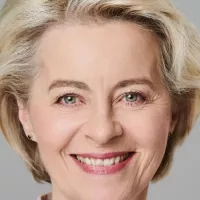
Ursula Gertrud von der Leyen is a prominent German politician...
Germany officially the Federal Republic of Germany is a Western...
China officially the People's Republic of China PRC is an...
Trending

2 months ago Euphoria Season 3: Release date, cast changes, streaming info, and Zendaya's role.

27 days ago Ubisoft's Anno 117 includes AI art placeholder; Fans react negatively.
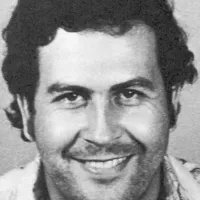
2 months ago Virginia Vallejo, Pablo Escobar's ex, reveals health struggle: Suffered a brutal stroke.

7 months ago Jake Gyllenhaal's 'Othello' Snubbed by Tony Awards Despite Box Office Success with Denzel Washington.
9 days ago World Cup 2026 Draw: Brazil in Group C, France's Path

Maisie Williams is an English actress who gained widespread recognition for her role as Arya Stark in the HBO series...
Popular

Candace Owens is an American conservative political commentator and author...
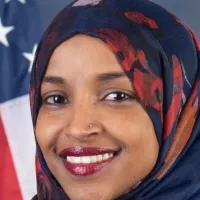
Ilhan Omar is an American politician currently serving as the...

XXXTentacion born Jahseh Dwayne Ricardo Onfroy was a controversial yet...
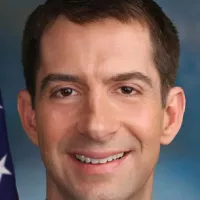
Tom Cotton is an American politician and Army veteran currently...

Kelsey Grammer is an accomplished American actor producer and singer...
The Kennedy Center Honors are annual awards recognizing individuals and...
